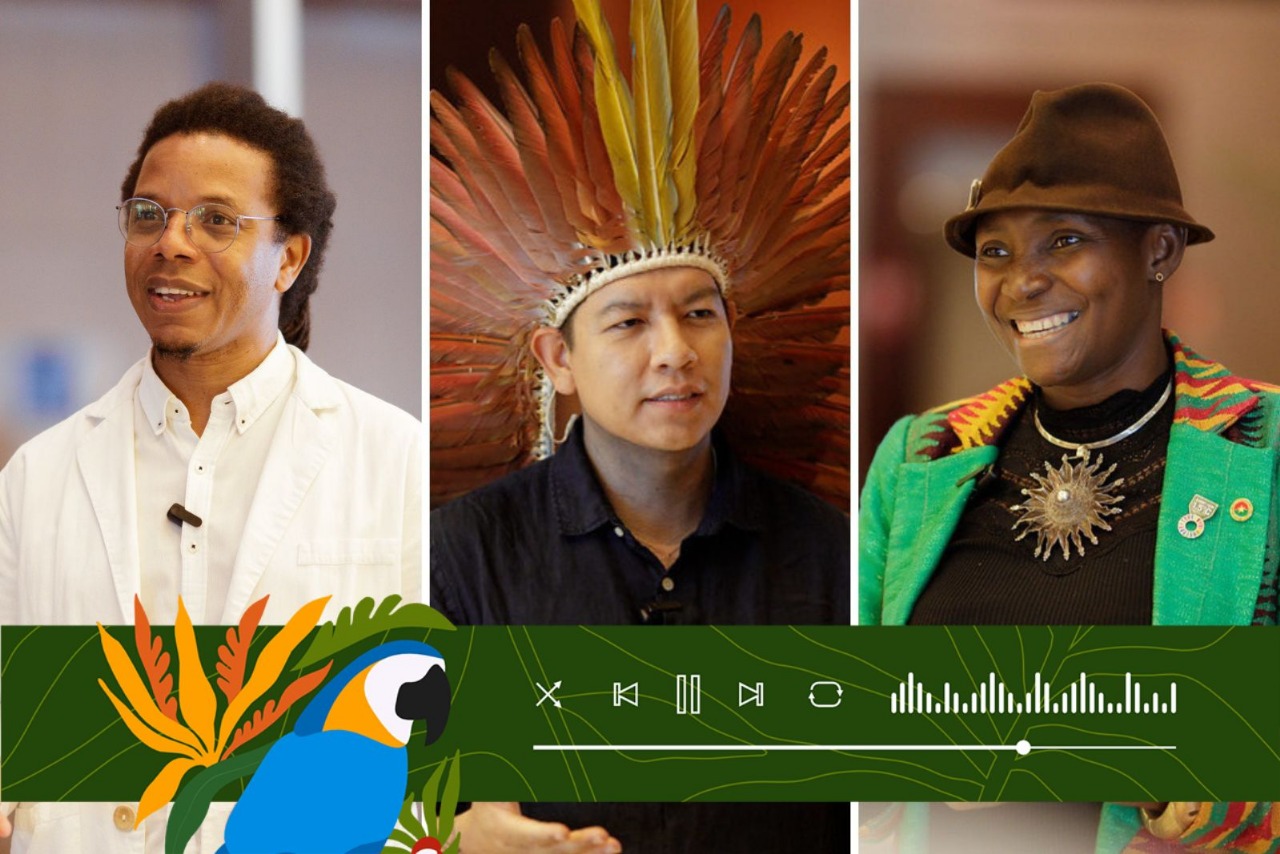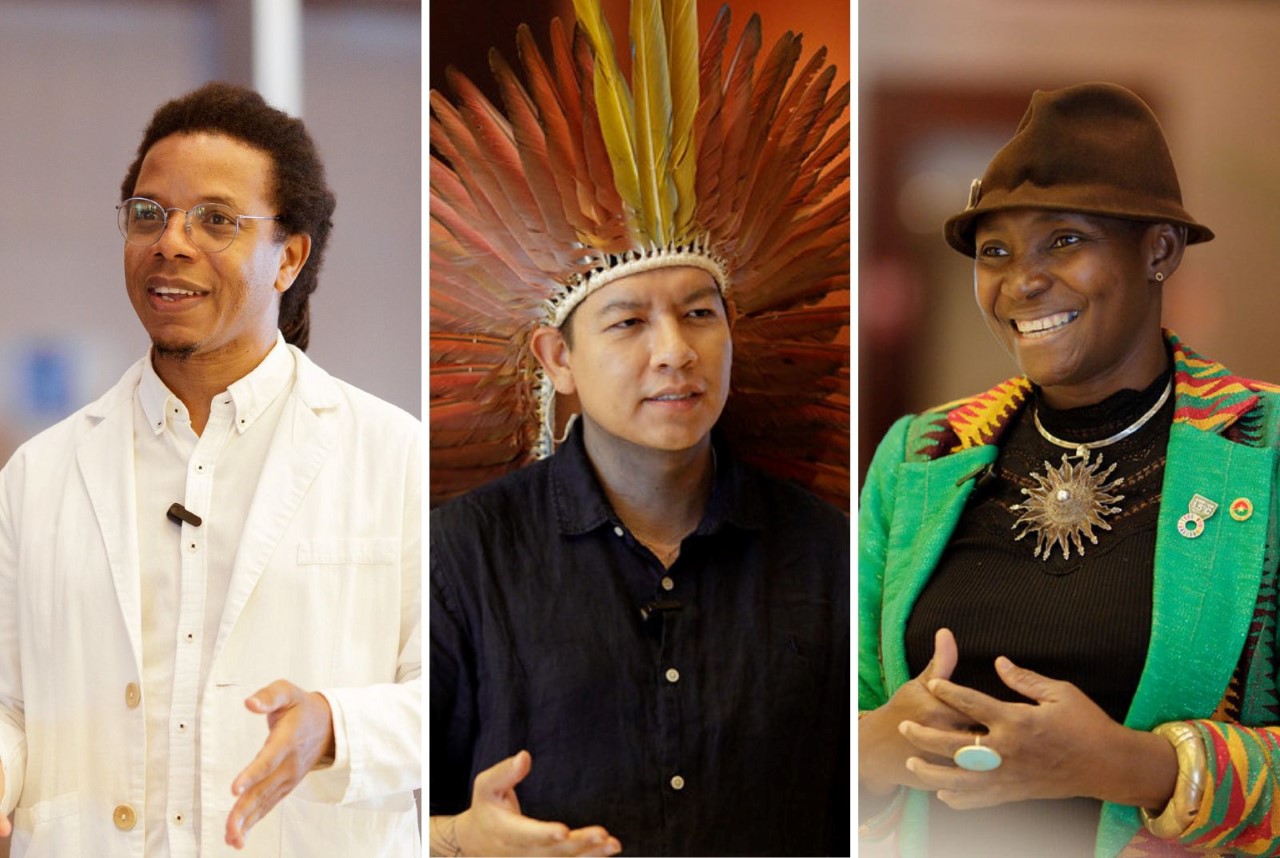COP30 Brasil Bulletin #06 - Burkinidi, minka, and balu wala: discover variations of the “mutirão” called by COP30
The term chosen by the Conference presidency to call the international community to action against climate change translates into indigenous and African languages. Listen to the report to learn more

Report: Mayara Souto / COP30 Brasil
Voice-over: Rebeca Rodrigues
Reporter: Of Tupi-Guarani origin, the term "mutirão" (meaning joint effort) was adopted by the COP30 presidency as a motto to call the international community to climate action. During Panama Climate Week, attendees heard the word in various accents and identified its essence in other cultures – especially indigenous and African ones.
Eric Terena, an indigenous activist from Mato Grosso do Sul, responsible for introducing the term during the Implementation Forum at the United Nations Framework Convention on Climate Change event, explains that “mutirão” is practiced in diverse ways across the globe.
Eric Terena: Indigenous people understand the word “mutirão” as a local, community mobilization that has been carried out since childhood, both within and outside the community, in support of indigenous and community rights. “Mutirão” manifests in different forms worldwide, whether for education, health, or the environment.
Reporter: Even within Brasil, the term appears in various regionalisms, as highlighted by Hannah Balieiro, executive director of the Mapinguari Institute.
Hannah Balieiro: In the Amazon region, we use a word with a similar concept to "mutirão," which is "puxirum." This term also evokes the collective idea of pooling efforts to undertake a significant activity that requires many hands, such as raising a roof, planting crops, or building a house.
Reporter: In meetings with other Latin American countries, the recognition is also evident, noted by Andrés Mogro, Climate Program Manager at the Avina Foundation in Ecuador.
Andrés Mogro: He explains that the term "mutirão" is akin to the Spanish word "minga," used in the Andean region. "Minga," in turn, derives from the Quechua term "minka," meaning collective work. It is typically employed in rural areas, where several people gather for voluntary labor to benefit the community.
Reporter: Panamanian indigenous activist Jacobed Solano states that, in her language, "mutirão" can be interpreted, within the context of COP, as the union between people and the land.
Jacobed Solano: She explains that the Gunadule people use the phrase "balu wala," which means 'salt tree' and can be translated to convey the idea of collective collaboration for climate justice, where everyone, including both people and the land, is included.
Reporter: African cultures also find meaning in the concept of cooperation for the common good, as underscored by Princess Abze Djigma, a traditional leader from Burkina Faso, West Africa.
Abze Djigma: She noted that a parallel can be drawn between the word "mutirão" and "burkinidi," which signifies the importance of incorporating integrity, humanism, humility, and altruism into one's behavior, whether at work or in personal life. This implies that we are all part of a single ecosystem—interconnected and interdependent.
Reporter: Diosmar Filho, a doctor in geography and senior researcher at the Iyaleta Research Association, focusing on Central African culture, states that "mutirão" represents caring for the land as a public home.
Diosmar Filho: We could consider a diasporic African perspective and refer to it as "boko" in the Bantu worldview, which means a public home. Therefore, we can characterize "mutirão" as a public home because we must care for the Earth as our collective dwelling.
Reporter: The expression "global mutirão" has been adopted in the official communications of the Brazilian presidency of COP30. In these documents, the COP30 president, Ambassador André Corrêa do Lago, emphasizes the need for an urgent and coordinated response from all countries to prevent environmental and social collapse.

